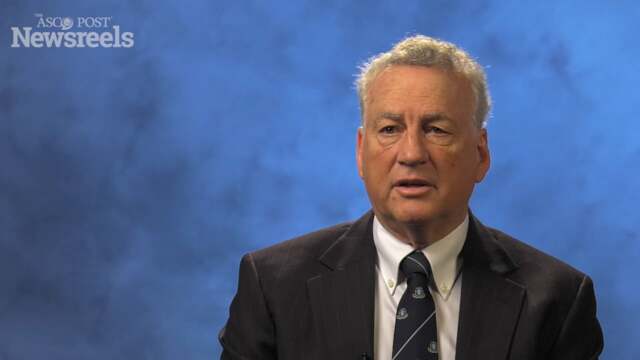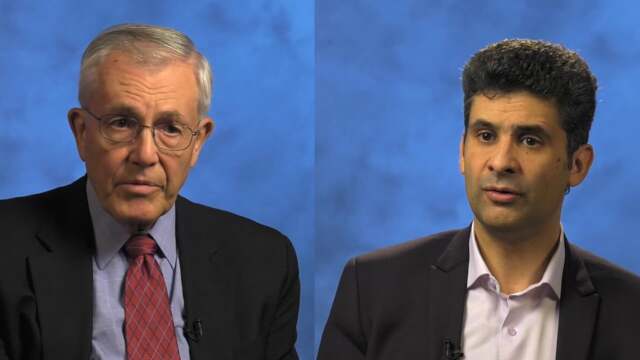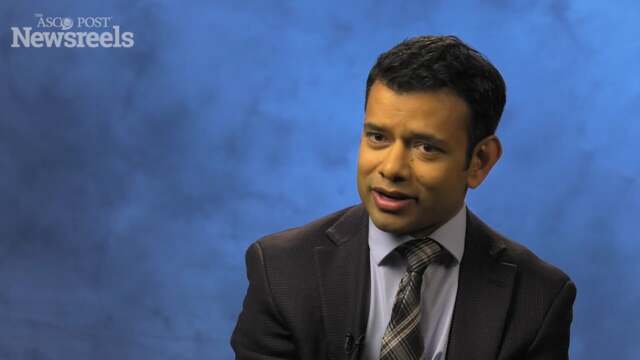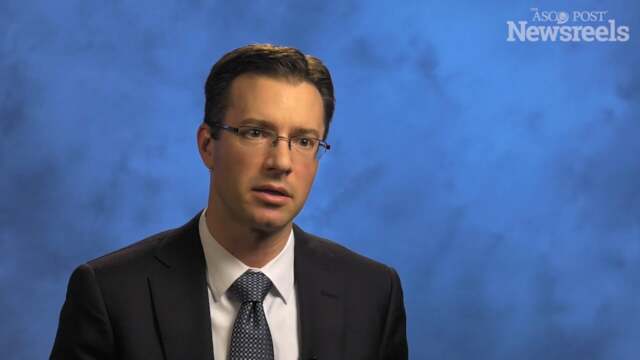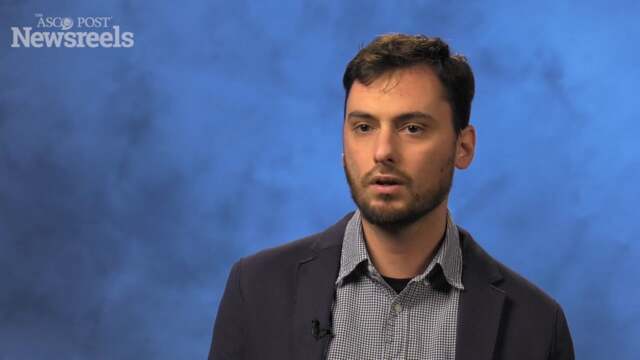Karim Chamie, MD, on Bladder Cancer: Optimizing Surgical and Medical Therapies
2017 Genitourinary Cancers Symposium
Karim Chamie, MD, of the University of California, Los Angeles, discusses induction and maintenance BCG therapy in non–muscle-invasive bladder cancer.
L. Michael Glodé, MD, of the University of Colorado Cancer Center, discusses study findings on adjuvant androgen deprivation vs mitoxantrone plus prednisone plus ADT in high-risk prostate cancer patients following radical prostatectomy. (Abstract 2)
George J. Bosl, MD, of Memorial Sloan Kettering Cancer Center, and Karim Fizazi, MD, PhD, of Gustave Roussy and the University of Paris Sud, offer the “pro” and “con” viewpoints for treatment intensification in patients with poor-prognosis germ cell tumors with unfavorable marker decline.
Sumanta K. Pal, MD, of the City of Hope, summarizes a session he co-chaired on the opportunities and challenges in systemic therapy for advanced renal cancer, including imaging as a biomarker of response and optimal selection of front-line treatments. (General Session 9)
Brian C. Allen, MD, of Duke University Medical Center, discusses the benefits of using a computerized process that provides step-wise guidance, decreases interpretation time, and reduces errors when measuring tumor response to treatment. (Abstract 432)
Joshua Armenia, PhD, of Memorial Sloan Kettering Cancer Center, discusses new information that is changing the understanding of prostate cancer, including the identification of a new subclass, which represents 21% of cases, and the discovery of recurrently mutated cancer pathways not previously implicated in prostate cancer (Abstract 131).
